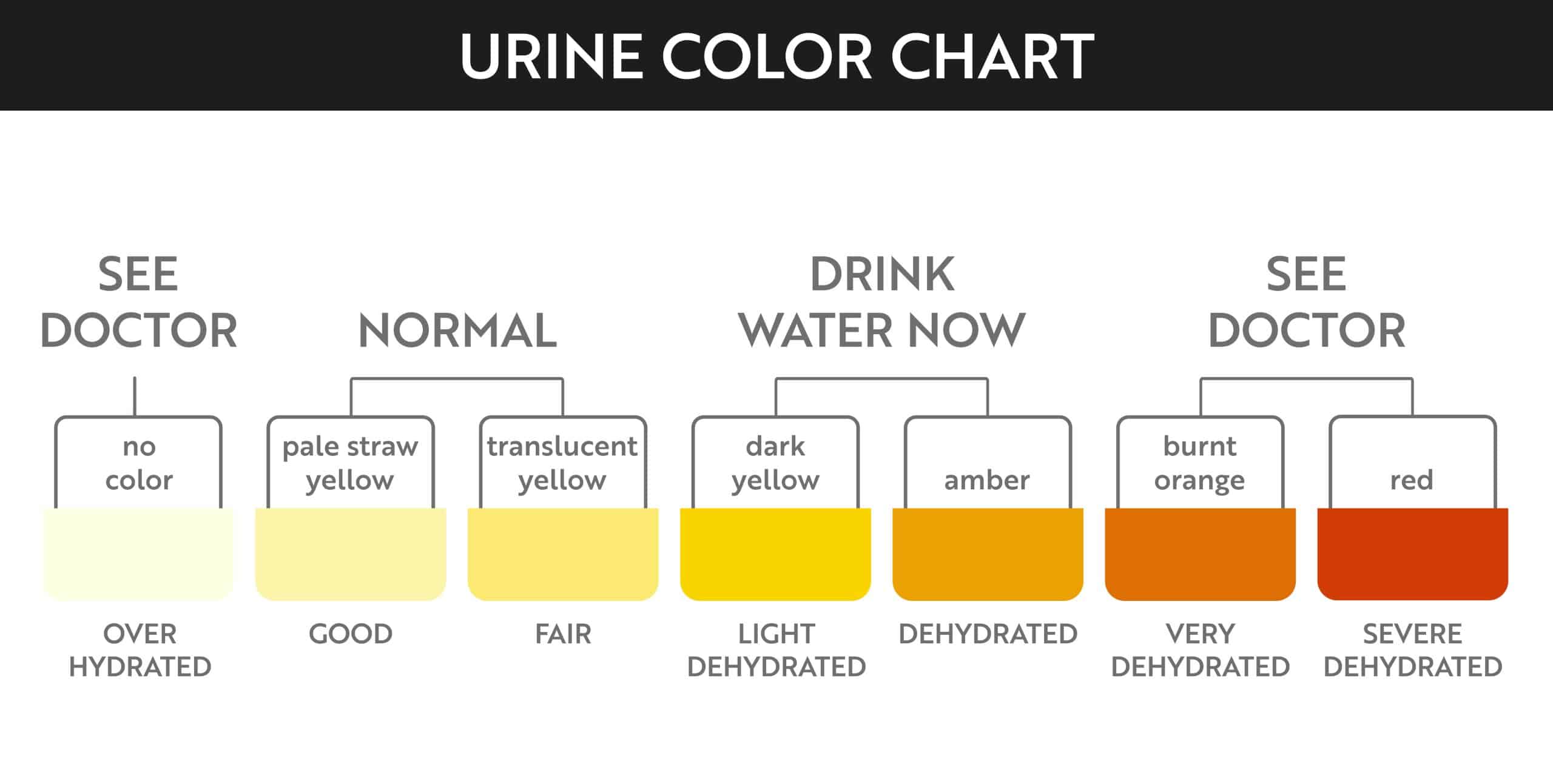Male Hematuria in Florida
Blood in Urine?
Understanding Male Hematuria
Spotting the Signs
Every man understands the importance of routine bodily functions and the expectations that accompany them. But what happens when the usual pale yellow stream takes on an unexpected hue?
For men who discover blood in their urine, the first experience can be alarming and deeply unsettling. Questions surge: Why is this happening? Is it serious? Am I okay?
The sight of red in the bowl can not only cause initial shock but may also give rise to anxiety about underlying health issues. In addition to physical concerns, the emotional toll can lead to hesitation in discussing the issue, even with medical professionals.
For many men, this unsettling experience can disrupt daily routines and peace of mind, making it essential to understand and address.
What is Hematuria?
Hematuria is the medical term for the presence of blood in urine. When it comes to male hematuria, understanding is crucial for appropriate action and peace of mind.
Types of Hematuria
1. Gross Hematuria: Visible to the naked eye, this type of hematuria turns urine pink, red, or brownish-red. The presence of blood is usually noticeable, although the amount of blood might vary.
2. Microscopic Hematuria: Here, the blood in the urine isn’t visible without a microscope. It’s often discovered during routine urine tests conducted for other reasons.
Functional and Regenerative Medicine Perspective on Hematuria Causes
Functional medicine views health issues through a comprehensive lens, emphasizing the body’s interconnected systems, while regenerative medicine focuses on renewing damaged or aged tissues. Together, they offer a holistic view on the causes of male hematuria.
Dietary Triggers and Sensitivities
Certain foods or additives might irritate the urinary tract, leading to inflammation and hematuria. For instance, excessive intake of beets, berries, or certain food dyes can color the urine, sometimes mistaken for hematuria.
Functional medicine might explore specific dietary intolerances or allergies that can indirectly affect the urinary system.
Chronic Systemic Inflammation
Systemic inflammation can impact the kidneys, bladder, and urinary tract. Chronic inflammation might result from food sensitivities, gut dysbiosis, or other factors, potentially leading to or exacerbating hematuria.
Gut Health and Microbiome Imbalance
A compromised gut can influence systemic health, potentially affecting the kidneys or bladder. Dysbiosis might contribute to urinary conditions, including infections or inflammations that can cause hematuria.
Environmental Toxins and Detoxification Pathways
Continuous exposure to certain environmental toxins, like heavy metals, can impact kidney health and function.
The Doctors Studio approach is to explore whether impaired detoxification pathways contribute to the accumulation of toxins, which might manifest as hematuria.
Hormonal Imbalances
Hormonal imbalances, particularly those influencing kidney function or vascular health, might be implicated in hematuria. Functional medicine would assess the endocrine system’s health in relation to hematuria.
Tissue Regeneration Needs
From a regenerative perspective, damaged tissues in the urinary tract, whether from aging, injury, or disease, might be a cause for hematuria.
Techniques like stem cell therapy or platelet-rich plasma (PRP) might be explored to aid tissue healing and regeneration.
Neurological and Vascular Health
The health of the nerves and blood vessels supplying the urinary tract is vital. Regenerative medicine might investigate potential degradation or damage in these areas, which could lead to or contribute to hematuria.
Immune System Function
Autoimmune conditions or immune system imbalances can impact the kidneys and bladder. Functional medicine would delve into the person’s immune profile, exploring potential links to hematuria.
Stress and Emotional Factors
Chronic stress can have systemic effects, influencing inflammation, hormonal balance, and overall health. While not a direct cause, stress might exacerbate underlying conditions leading to hematuria.
Conclusion
A functional and regenerative approach to male hematuria seeks to understand the root causes and systemic interplays that contribute to the condition. By considering the body’s interconnected systems and emphasizing tissue regeneration, these fields offer a comprehensive and integrative perspective on hematuria, promoting individualized care and holistic healing.
Functional and Regenerative Medicine
vs. Traditional Urology Care
While traditional urology care primarily focuses on symptom management through medications and surgical procedures, functional and regenerative medicine adopts a holistic approach. The aim is to understand and treat the root causes of the problem.
Root Cause Approach:
We assess the whole body, considering factors like diet, lifestyle, microvasculature, hormone balance, metabolic health, hydration and mental well-being that frequently contribute to prostatitis.
Personalized Treatments:
No two bodies are the same, so why should treatments be? The Doctors Studio medical team tailors treatments to individual needs, addressing imbalances and optimizing function.
Regenerative Techniques:
This approach uses therapies that aim to heal and regenerate damaged tissues, providing longer-lasting results and improved health and wellness.
Functional Medicine Approach:
Takes a holistic approach. It doesn’t just look at the disease but aims to understand its root cause. This approach might involve looking at genetic predispositions, environmental exposures, lifestyle factors, and more. The idea is not just to treat but to prevent, rejuvenate, and regenerate. By addressing the underlying causes and imbalances that contribute to prostate cancer, functional and regenerative medicine offers a more comprehensive approach to health and well-being.
-
-
- Comprehensive assessment to understand the patient’s entire health picture including specialty labs.
- Dietary and lifestyle changes tailored to the patient’s lab results.
- Use of natural supplements to target inflammation and promote healing.
- Stress management and physical therapies.
- Sleep optimization and restoration
- Personalized treatment plans that evolve with the patient’s progress.
- IV Nutrient/Ozone/UBI “TRIFECTA” Therapy
- EBOO, an oxygenation and ozonation process enhances the body’s immune response, reduces inflammation, and promotes healing.
- Hormone replacement therapy (TRT)
- Nutritional therapy to optimize cellular health
- Detoxification to rid the body of potential carcinogens
- Stress management, as chronic stress, can suppress the immune system
- Methylene Blue for urinary tract and prostatitis acts as a mild antiseptic, reducing bacterial activity and inflammation in the urinary tract. Its anti-inflammatory effects aid in alleviating symptoms of prostatitis
-
Regenerative Medicine Approach:
-
-
- Ozone injections to promote healing directly in the prostate tissue.
- PEMF (Pulsed Electromagnetic Field Therapy) to enhance healing and reduce inflammation.
- Neural therapy for chronic pelvic pain syndromes
- Custom antibiotic, antiviral, anti-fungal and anti-inflammatory prostate injection designed based on lab data collection.
- LI-ECSW (shockwave) to correct tight pelvic floor muscles and to stimulate tissue regeneration and blood flow
- Platelet Rich Plasma Prostate Injections
- Exosome and Stem Cell IV Infusions
- IV Chelation Therapy for removal of toxic burden
- Peptides specifically for healthy prostate tissue regeneration, decrease of inflammation, and hormone optimization.
-
Pros and Cons:
Traditional Urology Care:
Pros: Quick diagnosis, established treatment protocols, immediate symptom relief.
Cons: Might not address underlying causes, potential side effects from medications or interventions, might not factor in holistic health.
Functional and Regenerative Medicine:
Pros: Comprehensive understanding of the condition, individualized treatment plans, emphasis on long-term health and prevention.
Cons: May require more time for diagnosis and treatment, treatments might not be covered by insurance, requires patient commitment to lifestyle changes.
The approach to male hematuria differs notably between traditional urology care and functional and regenerative medicine. While traditional care often provides quicker interventions targeting the immediate symptom, functional and regenerative medicine aims for a holistic understanding and long-term health. The best approach often integrates insights from both perspectives, ensuring comprehensive care for the patient.
Seeking relief from hematuria?
“Through our unique approach, we explore a wide range of factors to determine what is causing
your prostate to act up.”
Interested in Improving Your Prostate Health?
How To Get Started

Choose an Assessment Plan
Start the process by determining your current
wellness status.

Schedule a Consultation
Meet with an expert practitioner to review the results of you assessment and discuss your customized treatment plan.

Begin Your Wellness Journey
It's time to get back to balance and experience optimal wellness and quality of life



